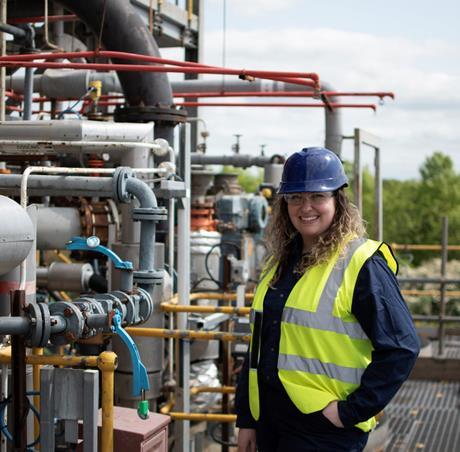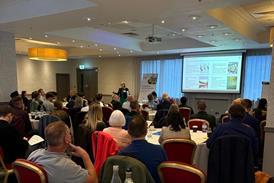- Home
- About
Economic Reports
The CIA gathers industry insights through a quarterly business survey to advocate for our members’ interests with policy makers, regulators and other stakeholders.
Read more
- Our focus
Sustainable Health Metrics 2024
The CIA is proud to announce the launch of the new Sustainable Health Metrics Tool.
Read more
- The Chemical Industry
The Chemical Industry
The chemical and pharmaceutical industry is fundamental to modern society. With an immense variety of products, from vital medicines and foods, the construction of buildings, to transport and leisure, the industry truly does have an impact on virtually every aspect of our daily lives.
Read more
- Events
- News
- Become a member
International Women in Engineering Day
On June 23 is International Women in Engineering Day and to mark this day the Chemical Industries Association celebrates the achievements and the amazing work that women engineers are doing to support lives and livelihoods every day. It is an opportunity to raise profile of women in engineering and focus attention on the fantastic career opportunities available to girls in this exciting industry.
In honour of this significant occasion, we asked some of our female engineers working for CIA member companies, why chemical engineering?
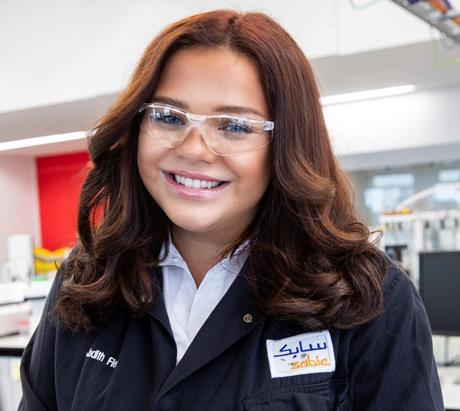
Amy Summerton
Role: Research Chemist
Company: SABIC Petrochemicals UK Ltd.
Back in 2015 upon leaving school I joined SABIC as a Laboratory Technician Apprentice; during my time on 2 different manufacturing assets I quickly learnt that I was more interested in the chemical process side of things. In 2017 I decided to switch career paths a little and completed a HNC in Chemical Engineering whilst working still in the laboratory. Back in 2021 I joined SABIC’s Technology & Innovation group and am now based within a team across Europe whilst completing my BEng Chemical Engineering. The thing I enjoy most about my job is not only the opportunity to discover ideas and create new technology but also the chance to work for and with different sites globally. I am currently working on projects to support process improvement to various SABIC assets. This year I have been lucky enough to join SABIC’s TRUCIRCLE programme on a project for mixed plastic waste recycling. I am huge advocate for apprenticeships and doing something that does not quite fit the usual path…it’s how I ended up in my career today.
Laura Grindey
Job Role: Chemical Engineer
Company: Eternis Fine Chemicals UK
When I was younger, the manufacturing industry just existed, and I never really thought about who built these sites. This changed when I started thinking about university. I thoroughly enjoyed maths and chemistry at school which pushed me towards a dual honour’s degree. However, my maths teacher recommended chemical engineering as a option having completed a chemical engineering degree himself. Getting into the University of Sheffield was a huge achievement for me and really motivated me to succeed as a chemical engineer. I felt so driven to gain knowledge and experience that I sent my CV to a company’s sales department in first year hoping someone in the company would organise a placement for me! Despite all odds, it worked! At university, committees and societies were also a huge part of my life. This is something I’ve kept up after university by engaging with both IChemE’s National Early Careers Committee and European Young Engineers. I am so grateful to have core roles in these committees so I can promote engineering and engage with a worldwide network of engineers. In my current role, I enjoy the variability I get; I’ve been able to install site modifications, build and lead the continuous improvement system, and trial process changes on our existing plant. There is so much a chemical engineer can be… a commissioning manager, a process safety advisor, a design engineer and at Eternis Fine Chemicals, I feel I get to experience this all.
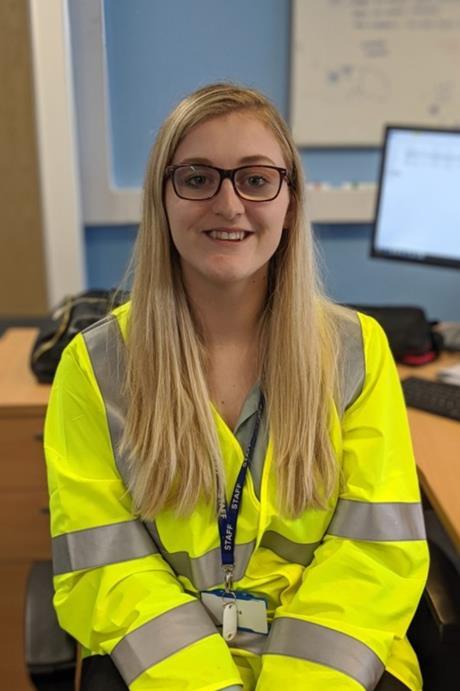
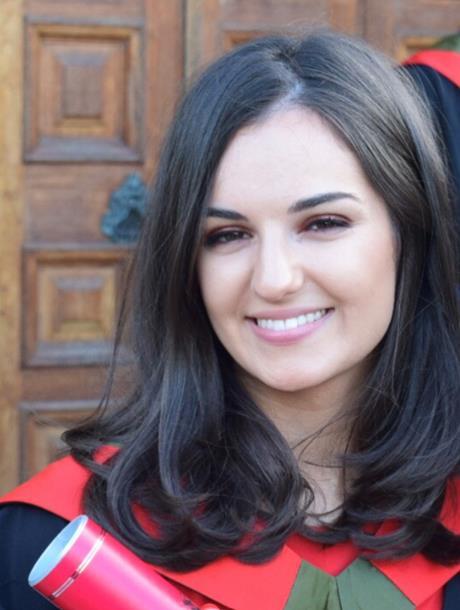
Monika MacNeil
Role: Medical (& Infrastructure) Technical Plant Manager
Company: Orbia, Koura Global (Fluorinated Solutions)
At school, I had a special affinity for the sciences – specifically chemistry and mathematics. I enjoyed working out the “how” and the “why” things worked. I chose engineering as it is such a dynamic field, vast enough that anyone can find their unique speciality.
I wanted my career path to start off and grow in a direction which challenged the global understanding within science, engineering, and technology. This was harmonised with my desire for changing lives and helping the world transition to a better, greener version of itself. The innovation behind each engineering occupation has an impact in shaping the future. Even non-technological industries rely heavily on professionals with STEM skills as technology is becoming even more prevalent. Women have been at the forefront of some of the most extraordinary engineering innovations. Although we have come a long way, there is still a gender gap in STEM careers – particularly in engineering. At a time when engineering continues to transform the way we live, work, and learn, women are needed now more than ever to close this gap.
Alex Wright
Role: Engineering Graduate
Company: Croda
I have always been surrounded by engineering one way or another growing up, whether this was building bird boxes next to my dad in the garage with my own little toolkit or exploring science parks on a weekend. This naturally made me curious about how things work and how they can help people and solve problems. To continue to develop myself and my knowledge, I knew I needed to gain a wide range of experiences and I sought out opportunities within research, manufacturing and innovation. Each of these roles, though vastly different were all a form of engineering and motivated me to pursue a career as an Engineer, this continually provided me new challenges.
In my current role within a Global Safety, Health, Environment and Quality Team I drive world-wide projects covering a range of topics from safe control of work to the specialised engineering branch of functional safety. I enjoy the variety of work and collaborating with people from different backgrounds and cultures, many of whom have become my mentors and role models, as they continually inspire and motivate me on my personal and professional journey.
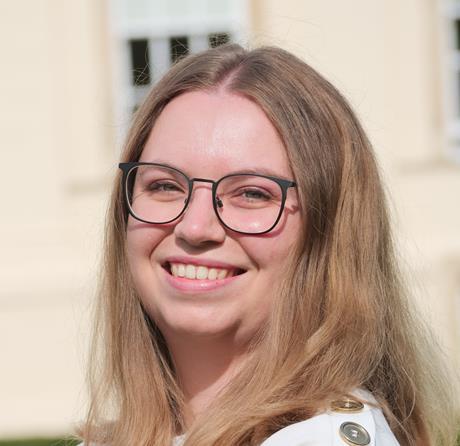
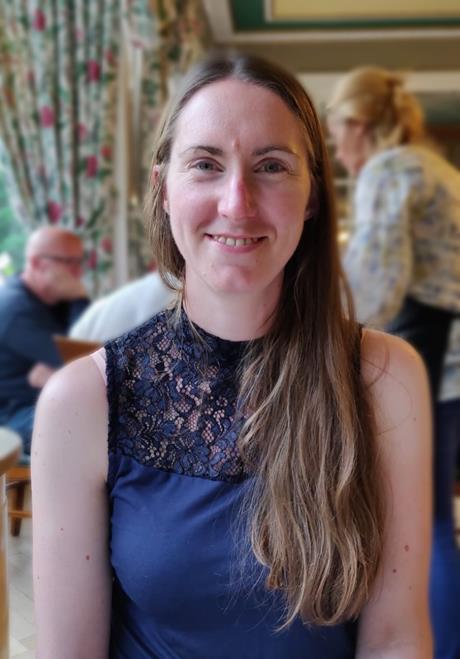
Bryony Merrall
Role: Process Improvement and Control Lead
Company: Tronox, Stallingborough
When I was at school, my interests and skills were based more towards the sciences; I liked the logic and the clarity of those subjects. I really had no idea what I wanted to do as a career and so when I picked my A levels I chose my strongest subjects, but tried to keep my options open. I picked double maths, physics and chemistry. When it came to applying for university I had decided that a degree that was purely maths or chemistry would not keep me engaged and my brother, a mechanical engineer, suggested that I look at engineering degrees. The application of the subjects I enjoyed and a chance to do practical troubleshooting and design physical equipment really appealed to me. I did work experience on a manufacturing facility and loved the hands on side of the work. I am now a chartered chemical engineer and through working in STEM I get to work with a diverse group of people and see my work put into practice.
Hannah Mohsen
Role: Production Engineer
Company: Solutia UK Ltd, a subsidiary of Eastman Chemicals
I always knew I wanted to work in something related to science, and my brother suggested I looked into Engineering as a career path. While researching engineering in general my friend’s mum introduced me to Chemical Engineering and I was hooked. I went to the University of Sheffield, and while studying for my Masters I was offered a job at Eastman where I had done a year placement. Since joining two years ago, I have worked as the Production Engineer on two production plants, and I am now working on a multi-million pound project as the process expert. From day one, the team of operators and day staff have always made me feel welcome and pushed me to be the best that I can be, which has allowed me to grow well beyond what I could expect straight out of University. I am now involved in an employee group as the point of contact for 14 locations across the EMEA region to help with organising activities to encourage the professional development of employees. Through this I have been able to continue to push myself and challenge myself to come up with solutions that can be implemented in multiple different countries.
